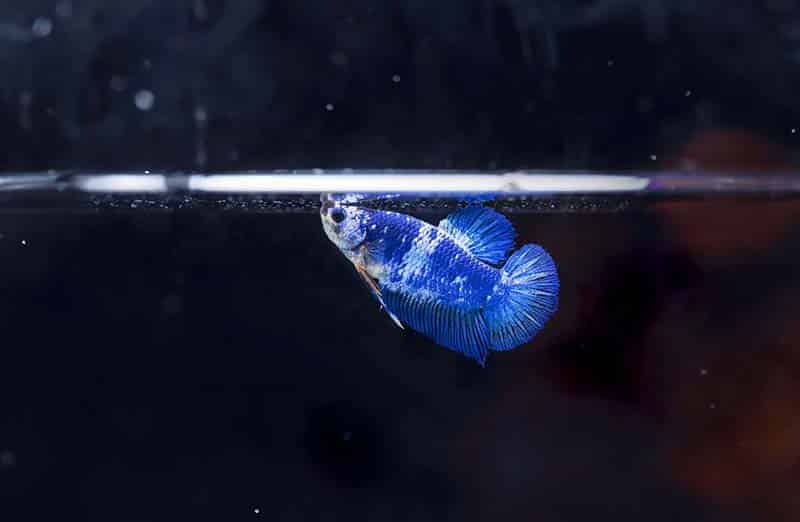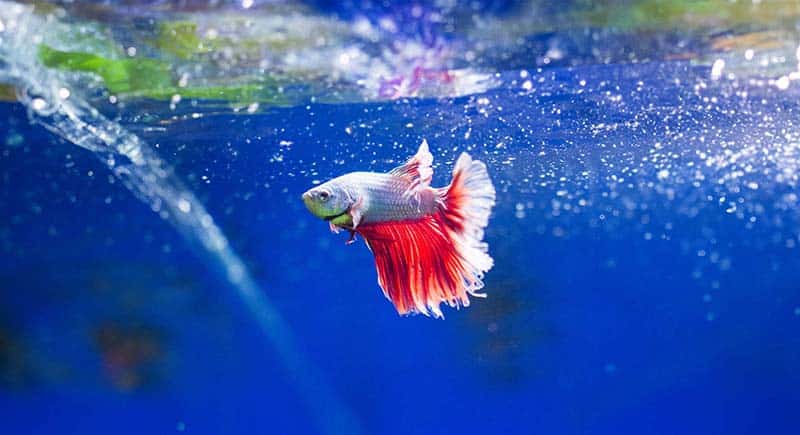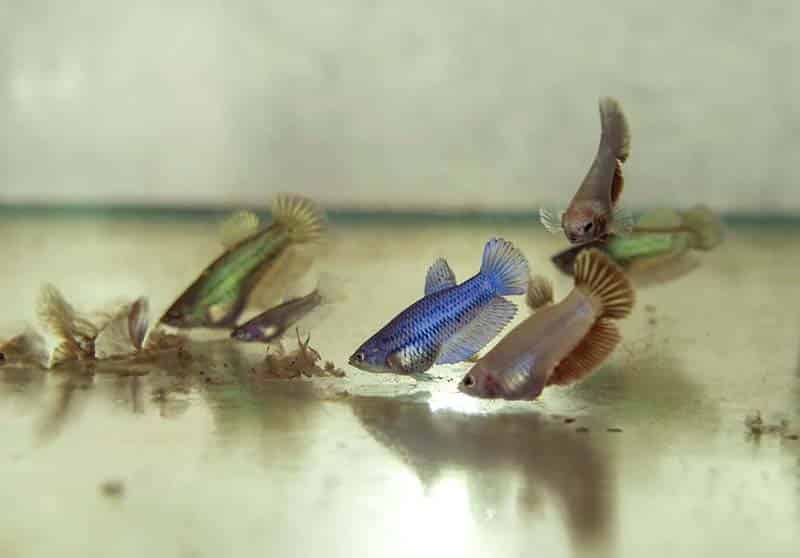Overfeeding betta fish can lead to various health issues as some bettas will continue to eat if you keep feeding them. Ensuring your betta doesn’t receive too much food is crucial.
Read this article to learn what happens when you overfeed your betta, how to treat it, and tips for feeding your betta correctly.
Overfed Bettas are Caused by Too Much Food in Your Tank
Overfeeding betta fish is a widespread issue among pet owners, often because they are omnivores in the wild and will eat whenever food is available. Bettas tend to eat uncontrollably in a home aquarium environment where food is abundant.
Causes:
- Misunderstanding dietary needs: Some people fail to realize the small amount of food bettas actually require.
- Feeding frequency: Feeding fish multiple times a day and in one sitting can lead to overeating.
- Wrong type of food: Some foods are high in calories and can cause rapid weight gain if overused.

Signs Of An Overfed Betta Fish
Overfeeding is one of the most common causes of death in betta fish. Therefore, it’s crucial to easily identify the symptoms of overfeeding in bettas to adjust their diet accordingly.
Here are some signs that your betta fish has been overfed:
- Bloated belly: A bloated belly is one of the clearest signs that your betta fish has been overfed. If its belly looks swollen or distended, it indicates overeating.
- Decreased activity: If your betta fish swims less, loiters at the bottom of the tank more, or generally seems lethargic, it may be uncomfortable due to overeating.
- Excess food: If your tank is filled with excess food floating in the water or floating fish pellets, it’s a clear sign that your betta fish is being overfed.
- Abnormal swimming: If your betta fish swims awkwardly, clumsily, or wobbles due to a bloated belly making normal movement difficult, it’s a sign of swim bladder disorder.
- Diarrhea or constipation: Overeating can cause digestive disorders in betta fish, due to the excessive amount of food intake that the digestive system can’t process in time, leading to diarrhea or constipation.
- Cloudy water: Overfeeding can affect the water quality in the tank. If the water in your tank starts to become cloudy, it’s a sign that there’s too much excess food.

Treat An Overfed Betta
You can treat overfeeding in betta fish by reducing their food intake (feeding them little by little) and changing the water weekly.
If you feed your betta fish three times a day, cut back to twice a day with less food. If you’re unsure about how often to feed your betta fish, refer to our previous article on betta fish feeding frequency.
Performing a 50% water change weekly will help you remove excess waste and leftover food.
Continue to feed your betta fish less food until you see signs of recovery.

How To Avoid Overfeeding Your Betta Fish?
To prevent your betta fish from overeating, here are some tips:
Portion Control: Feed your betta fish a small amount they can consume within 2 minutes. Overeating can lead to constipation and bloating.
Feeding Schedule: Establish a regular feeding betta schedule and stick to it. Typically, feeding your betta fish once or twice a day is sufficient.
Quality Food: Choose high-quality betta fish food specially formulated for their dietary needs. Provide a variety of different foods to ensure your betta fish gets a balanced diet. This can include pellet food, freeze-dried or frozen foods, and occasionally treats like bloodworms. Avoid feeding betta human food as it can harm their health.
Monitor Behavior: Pay attention to your betta fish’s behavior and adjust their feeding accordingly. If they don’t seem interested in the food or appear bloated, reduce the amount of food you’re feeding them.
Remember, maintaining a healthy diet is essential for your betta fish’s health. If you have any concerns about their health or eating habits, consult a veterinarian specializing in fish care.
Conclusion
Whether you’re worried that your fish might have overeaten or want to prevent overfeeding betta fish, follow our simple steps to keep your fishy friend healthy!
Remember not to feed your betta fish more than they can eat in a day and ensure to remove any leftover food immediately.
If your betta fish is experiencing digestive complications due to its diet, feed them shelled peas to resolve any digestive issues.
National Park Aquarium hope this article has helped you address issues of overfeeding in betta fish and how to establish an appropriate feeding regimen for them.
Learn more:
- Betta fish not eating (top reasons and what to do)
- Betta fish spitting out food (why and what)




